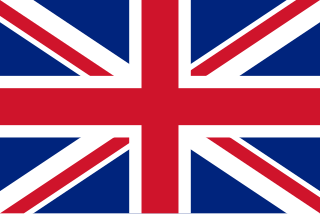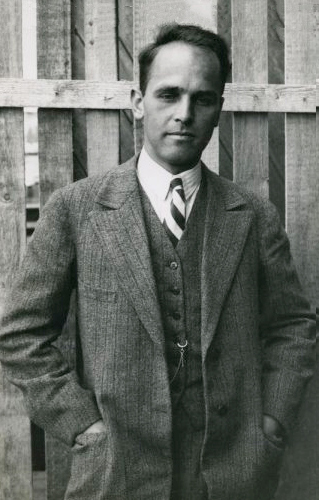Rowing at the 2000 Summer Olympics took place at the Sydney International Regatta Centre in Penrith, New South Wales, Australia. It featured 547 competitors from 51 nations taking part in 14 events.

Great Britain, represented by the British Olympic Association (BOA), competed at the 1932 Summer Olympics in Los Angeles, California, United States. British athletes have competed in every Summer Olympic Games. 108 competitors, 90 men and 18 women, took part in 50 events in 10 sports. British athletes won four gold medals, and sixteen medals overall, finishing eighth.

New Zealand competed at the 1932 Summer Olympics in Los Angeles, United States. The team of 21 was New Zealand's largest to date and comprised 11 rowers, six athletes, three boxers, and one cyclist. The officials were manager Philip Rundle of Dunedin, boxing and athletic coach W. J. Heenan, and rowing coach Clarrie Healey.

Frederick Haughton "Rangi" Thompson was a New Zealand rower who represented his country at one Olympic and two British Empire Games, winning a medal at each.
Leslie James O'Connell is a New Zealand former representative rower. He was a two-time world champion and an Olympic champion who won his Olympic gold medal at the 1984 Summer Olympics in Los Angeles in the men's coxless four.
Shane Joseph O'Brien is a former New Zealand rower who won an Olympic gold medal at the 1984 Summer Olympics in Los Angeles, California, USA.
Conrad Christian Robertson is a former New Zealand rower who won an Olympic Gold medal at the 1984 Summer Olympics in Los Angeles.
Keith Charles Trask is a former New Zealand rower who won an Olympic gold medal at the 1984 Summer Olympics in Los Angeles.
Peter Gregory Johnston, known as Greg Johnston, is a former New Zealand rower who won an Olympic bronze medal at the 1988 Summer Olympics in Seoul. During his rowing career, Johnston has won 26 national championship titles in rowing, and was world champion in 1983 in the coxed four event.

Rodica Arba is a retired Romanian rower. She competed at the 1980, 1984 and 1988 Olympics and won two gold, one silver, and one bronze medal. At the world championships she won four gold, one silver and two bronze medals between 1981 and 1987, mostly in coxless pairs.
Allan Douglas "Jack" Horan is an Olympian oarsman who competed at the 1984 Summer Olympics as a representative of New Zealand.
The Men's coxless pair competition at the 1932 Summer Olympics in Los Angeles took place at the Long Beach Marine Stadium.

The men's coxed pair competition at the 1932 Summer Olympics in Los Angeles took place are at Long Beach Marine Stadium on 13 August. Competition consisted of a single round. There were 4 boats from 4 nations, with each nation limited to a single boat in the event. The event was won by the United States, its first victory in the event. Coxswain Edward Jennings had also been on the bronze medal team in 1924, making him the fifth man with multiple medals in the coxed pair. The American rowers were Charles Kieffer and Joseph Schauers. Silver went to Poland, in its coxed pair debut. France earned bronze.

The men's coxed four competition at the 1932 Summer Olympics in Los Angeles took place at the Long Beach Marine Stadium. It was held from 10 to 13 August. There were 7 boats from 7 nations, with each nation limited to a single boat in the event. The event was won by Germany, the nation's first victory in the event since 1912 and third overall. Defending champions Italy came within 0.2 seconds of repeating, with Germany passing them at the very end of the final. Poland won its second consecutive bronze medal.

Pieter Anthonie Roelofsen was a Dutch rower. He competed at the 1932 Summer Olympics in the coxless pairs, together with Godfried Roëll, and finished fourth, 0.2 seconds behind the third place. Roëll and Roelofsen won the European title in 1931.

The men's coxed four competition at the 1936 Summer Olympics in Berlin took place are at Grünau on the Langer See. It was held from 12 to 14 August. There were 16 boats from 16 nations, with each nation limited to a single boat in the event. The event was won by Germany, the second time the nation had won two consecutive gold medals in the men's coxed four. Germany's four gold medals overall was the most any nation won in the event before it was discontinued; four nations won two. Switzerland, which had won three straight medals in the 1920s before not competing in 1932, returned to the podium with a silver medal. Bronze went to France, the nation's first medal in the event since 1924. Both Italy and Poland had two-Games medal streaks broken.
The men's coxless four (M4-) competition at the 1984 Summer Olympics took place at Lake Casitas in Ventura County, California, United States. It was held from 31 July to 5 August and the outcome was wide open due to the Eastern Bloc boycott and thus the absence of the dominating team from the Soviet Union, and previously East Germany. The event was won by the team from New Zealand.

The men's coxed four (M4+) competition at the 1984 Summer Olympics took place at Lake Casitas in Ventura County, California, United States. There were 8 boats from 8 nations, with each nation limited to a single boat in the event. It was held from 30 July to 5 August and the dominant nations were missing from the event due to the Eastern Bloc boycott. Great Britain dominated the regatta, winning the nation's first rowing gold since the 1948 Summer Olympics, back then in front of their home crowd at the Henley Royal Regatta course. The 1984 event started Steve Redgrave's Olympic rowing success that would eventually see him win five Olympic gold medals. It was Great Britain's first victory in the men's coxed four and first medal of any colour in the event since 1912. The other medaling nations had also not been to the podium in the coxed four recently; the United States took silver, that nation's first medal in the event since 1952, while New Zealand's bronze was its first medal since 1968.
The men's coxless pair (M2-) competition at the 1984 Summer Olympics took place at Lake Casitas in Ventura County, California, United States. It was held from 30 July to 5 August and the outcome was wide open due to the Eastern Bloc boycott and thus the absence of the dominating team from East Germany. The event was won by the team from Romania.









